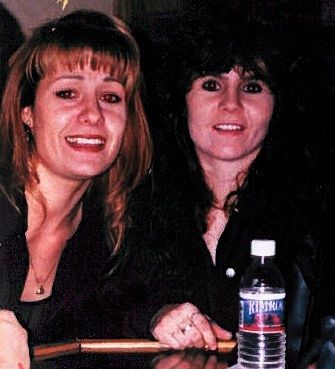Kai Hoeckel was dead. He was found one morning last week, cold to the touch, lying on a futon at his father's home in Grove City.And behind each of these stories is a family that is suffering terribly from their loss. Here's that part of this story:
The toxicology report is not back yet, but there's a good chance the prescription drug OxyContin killed him.
He was 23.
As the word spread through the Rotary clubs and the mothers' circles around Englewood, it unleashed a flood of reactions: disbelief, fear, introspection, anger, determination and -- always underlying the others -- a gripping pain.
Kai was the kid who made crazy potions when he was young. He was the boy with the mischievous smile on his face at second base in Little League. He was the young man everyone liked.
Yes, after graduating from high school, he had fallen under the spell of drugs. He had spent time in the hospital. He had spent time in jail. In May, he had overdosed on his favorite drug, the addictive painkiller, OxyContin.
But that's not who he was. He had kicked the habit. At the end of the summer, he was talking about the future, about continuing on the career path of his mother, Carroll Swayze, an artist. Kai was going to blow glass in Fort Myers or enroll in the Pennland School of Crafts in North Carolina.
Then, suddenly, he was dead.
Friends gathered at Swayze's home in north Englewood. They looked for answers when there really are none.
The parents among them could not shake a disturbing thought. If drugs can consume a handsome, talented, funny young man who had no intention of killing himself and everything to live for, how safe are their own children?
Everyone, it seems, has a story to tell about someone they know who is on drugs or has died from them. These drug users are not pathetic losers with parents who don't care. These are the sons and daughters of contractors, attorneys and teachers, of honest, hardworking, contributing members of society.
Swayze tried to help her son. She hired a drug therapist and counselor to come to the house. He had long talks with Kai, who freely admitted his addiction and wanted to shake it.How sad.
In desperation after his overdose in May, Swayze took Kai out of town, way out of town. The two went to a secluded area of Michigan where Swayze markets her artwork in the summer. There, Kai flourished. He helped Swayze at shows. He produced bronze pieces that sold well. He worked as a carpenter on two cabins. As usual, he made friends who wanted him to stay.
"We had such a great summer," Swayze says. "It was the first time I wasn't afraid. He had a problem, and this summer was the first time he faced the problem. He did it willingly. Not a moment was I nervous about him. The whole time, he was like the little boy I raised."
Finally, it was time to come home. Swayze says they talked about it, and Kai said, "Mom, we can't stay here forever."
They returned Sept. 7. A little more than two weeks later, Kai was dead.
People want to do something, but they're not sure what. Meanwhile, parents with kids who have stuck around after high school live in fear. One said she interrogates her son when he gets home. Where was he? Who was he with? When she hears an unfamiliar name, she rushes to the computer and pores through online records. She's a nervous wreck because he wants to share an apartment with a friend. No one should have to live like that.
There's no bringing Kai Hoeckel back. And there's no foolproof manual telling us how to comfort his mother or make ourselves feel better or where to go from here. Maybe his death will spur a flurry of action that will save someone else. That's about the best we can hope for.
And, Swayze sees a lesson in her personal tragedy.
"You have to see the good in every day," she says. "Savor every moment. I don't think people realize what they have. A friend called from Virginia Beach the other night. 'What do you want me to do?' she asked. "I said, 'Just go hug your son.'"
The story also includes this very interesting analysis of why drug deaths are so under-reported:
The drug problem in this area is not exaggerated. In fact, it is understated. Drug deaths often do not make the news as drug deaths. In the newspapers, we read only that a young man or woman has been found dead and that foul play is not suspected.How I wish these kids whose name the "rattle off" had seen my Voice of the Victims films, so they could have made better choices and be more than sad memories today.
By the time a toxicology report comes back four months later, the death is old news, especially if it does not involve a prominent person or a separate crime. Unless we know the family, we never make a positive link between the death and drugs.
But ask most young people working around town. They know the real score. Drugs are readily available, their friends are doing them, and they can rattle off the names of those who have died because of it.
Source: Eric Ernst in the Sarasota Herald-Tribune



